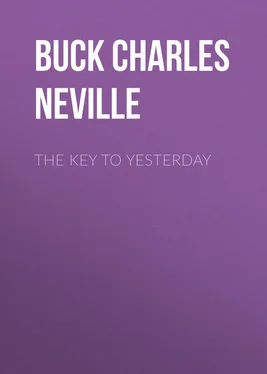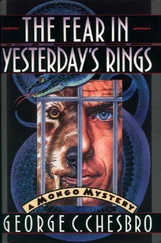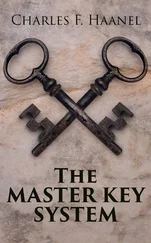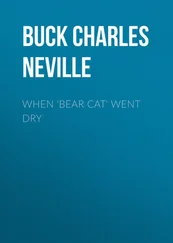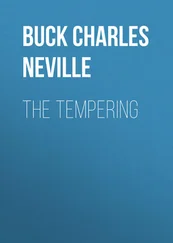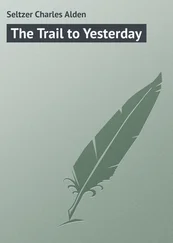Charles Buck - The Key to Yesterday
Здесь есть возможность читать онлайн «Charles Buck - The Key to Yesterday» — ознакомительный отрывок электронной книги совершенно бесплатно, а после прочтения отрывка купить полную версию. В некоторых случаях можно слушать аудио, скачать через торрент в формате fb2 и присутствует краткое содержание. ISBN: , Жанр: foreign_prose, foreign_antique, foreign_language, на английском языке. Описание произведения, (предисловие) а так же отзывы посетителей доступны на портале библиотеки ЛибКат.
- Название:The Key to Yesterday
- Автор:
- Жанр:
- Год:неизвестен
- ISBN:http://www.gutenberg.org/ebooks/33759
- Рейтинг книги:3 / 5. Голосов: 1
-
Избранное:Добавить в избранное
- Отзывы:
-
Ваша оценка:
- 60
- 1
- 2
- 3
- 4
- 5
The Key to Yesterday: краткое содержание, описание и аннотация
Предлагаем к чтению аннотацию, описание, краткое содержание или предисловие (зависит от того, что написал сам автор книги «The Key to Yesterday»). Если вы не нашли необходимую информацию о книге — напишите в комментариях, мы постараемся отыскать её.
The Key to Yesterday — читать онлайн ознакомительный отрывок
Ниже представлен текст книги, разбитый по страницам. Система сохранения места последней прочитанной страницы, позволяет с удобством читать онлайн бесплатно книгу «The Key to Yesterday», без необходимости каждый раз заново искать на чём Вы остановились. Поставьте закладку, и сможете в любой момент перейти на страницу, на которой закончили чтение.
Интервал:
Закладка:
“I have never told this before,” Saxon said. “Slowly, the things I had known seemed to come back. For example, I did not have to relearn to read and write. All the purely impersonal things gradually retrieved themselves, but, wherever a fact might have a tentacle which could grasp the personal – the ego – that fact eluded me.”
“How did you drift into art?” demanded Steele.
“That is it: I drifted into it. I had to drift. I had no compass, no port of departure or destination. I was a derelict without a flag or name.”
“At the Cincinnati Academy, where I first studied, one of the instructors gave me a hint. He felt that I was struggling for something which did not lie the way of his teaching. By that time, I had acquired some little efficiency and local reputation. He told me that Marston was the master for me to study, and he advised me to go further East where I could see and understand his work. I came, and saw, ‘The Sunset in Winter.’ You know the rest.”
“But, now,” Steele found himself speaking with a sense of relief, “now, you are Robert A. Saxon. You have made yourself from unknown material, but you have made yourself a great painter. Why not be satisfied to abandon this unknown past as the past has abandoned you?”
“Wait,” the other objected, with the cold emphasis of a man who will not evade, or seek refuge in specious alternatives.
“Forget to-night who I am, and to-morrow I shall have no assurance that the police are not searching for me. Why, man, I may have been a criminal. I have no way of knowing. I am hand-tied. Possibly, I have a wife and family waiting for me somewhere – needing me!”
His breath came in agitated gasps.
“I am two men, and one of them does not know the other. Sometimes, it threatens me with madness – sometimes, for a happy interval, I almost forget it. At first, it was insupportable, but the vastness of the prairie and the calm of the mountain seemed to soothe me into sanity, and give me a grip on myself. The starlight in my face during nights spent in the saddle – that was soothing; it was medicine for my sick brain. These things at least made me physically perfect. But, since yesterday is sealed, I must remain to some extent the recluse. The sort of intercourse we call society I have barred. That is why I am anxious for your cabin, rather than your clubs and your entertainments.”
“You didn’t have to tell me,” said Steele slowly, “but I’m glad you did. I and my friends are willing to gauge your past by your present. But I’m glad of your confidence.”
Saxon raised his face, and his eyes wore an expression of gratification.
“Yes, I’m glad I told you. If I should go out before I solve it, and you should ever chance on the answer, I’d like my own name over me – and both dates, birth as well as death. My work is, of course, to learn it all – if I can; and I hope – ” he forced a laugh – “when I meet the other man, he will be fit to shake hands with.”
“Listen,” Steele spoke eagerly. “How long has it been?”
“Over six years.”
“Then, why not go on and round out the seven? Seven years of absolute disappearance gives a man legal death. Let the old problem lie, and go forward as Robert Saxon. That is the simplest way.”
The other shook his head.
“That would be an evasion. It would prove nothing. If I discover responsibilities surviving from the past, I must take them up.”
“What did the physicians say?”
“They didn’t know.” Saxon shook his head. “Perhaps, some strong reminder may at some unwarned moment open the volume where it was closed; perhaps, it will never open. To-morrow morning, I may awaken Robert Saxon – or the other man.” He paused, then added quietly: “Such an unplaced personality had best touch other lives as lightly as it can.”
Steele went silently over, and cranked the machine. As he straightened up, he asked abruptly:
“Would you prefer calling off this dinner?”
“No.” The artist laughed. “We will take a chance on my remaining myself until after dinner, but as soon as convenient – ”
“To-morrow,” promised Steele, “we go to the cabin.”
CHAPTER III
Perhaps, the same futile vanity that led Mr. Bellton to import the latest sartorial novelties from the Rue de la Paix for the adornment of his person made him fond of providing foreign notables to give color to his entertainments.
Mr. Bellton was at heart the poseur , but he was also the fighter. Even when he carried the war of political reform into sections of the town where the lawless elements had marked him for violence, he went stubbornly in the conspicuousness of ultra-tailoring. Though he loved to address the proletariat in the name of brotherhood, he loved with a deeper passion the exclusiveness of presiding as host at a board where his guests included the “best people.”
Señor Ribero, who at home used the more ear-filling entitlement of Señor Don Ricardo de Ribero y Pierola, was hardly a notable, yet he was a new type, and, even before the ladies had emerged from their cloak-room and while the men were apart in the grill, the host felt that he had secured a successful ingredient for his mixture of personal elements.
After the fashion of Latin-American diplomacy, educated in Paris and polished by great latitude of travel, the attaché had the art of small talk and the charm of story-telling. To these recommendations, he added a slender, almost military carriage, and the distinction of Castilian features.
A punctured tire had interrupted the homeward journey of Steele and Saxon, who had telephoned to beg that the dinner go on, without permitting their tardiness to delay the more punctual.
The table was spread in a front room with a balcony that gave an outlook across the broad lawn and the ancient trees which bordered the sidewalk. At the open windows, the May air that stirred the curtains was warm enough to suggest summer, and new enough after the lately banished winter to seem wonderful – as though the rebirth of nature had wrought its miracle for the first time.
Ribero was the only guest who needed presentation, and, as he bowed over the hand of each woman, it was with an almost ornate ceremoniousness of manner.
Duska Filson, after the spontaneous system of her opinions and prejudices, disliked the South American. To her imaginative mind, there was something in his jetlike darkness and his quick, almost tigerish movements that suggested the satanic. But, if the impression she received was not flattering to the guest, the impression she made was evidently profound. Ribero glanced at her with an expression of extreme admiration, and dropped his dark lashes as though he would veil eyes from which he could not hope to banish flattery too fulsome for new acquaintanceship.
The girl found herself seated with the diplomat at her right, and a vacant chair at her left. The second vacant seat was across the round table, and she found herself sensible of a feeling of quarantine with an uncongenial companion, and wondering who would fill the empty space at her left. The name on the place card was hidden. She rather hoped it would be Saxon. She meant to ask him why he did not break away from the Marston influence that handicapped his career, and she believed he would entertain her. Of course, George Steele was an old friend and a very dear one, but this was just the point: he was not satisfied with that, and in the guise of lovers only did she ever find men uninteresting. It would, however, be better to have George make love than to be forced to talk to this somewhat pompous foreigner.
“I just met and made obeisance to the new Mrs. Billie Bedford,” declared Mr. Bellton, starting the conversational ball rolling along the well-worn groove of gossip. “And, if she needs a witness, she may call on me to testify that she’s as radiant in the part of Mrs. Billie as she was in her former rôle of Mrs. Jack.”
Читать дальшеИнтервал:
Закладка:
Похожие книги на «The Key to Yesterday»
Представляем Вашему вниманию похожие книги на «The Key to Yesterday» списком для выбора. Мы отобрали схожую по названию и смыслу литературу в надежде предоставить читателям больше вариантов отыскать новые, интересные, ещё непрочитанные произведения.
Обсуждение, отзывы о книге «The Key to Yesterday» и просто собственные мнения читателей. Оставьте ваши комментарии, напишите, что Вы думаете о произведении, его смысле или главных героях. Укажите что конкретно понравилось, а что нет, и почему Вы так считаете.
